
What Black History Month Means to Me
Reflections from Sunnybrook staff
This Black History Month, we asked some of our team members to share what this month means to them and to reflect on their experiences at Sunnybrook.
Thank you to these team members for sharing their thoughts, personal stories, triumphs and challenges.
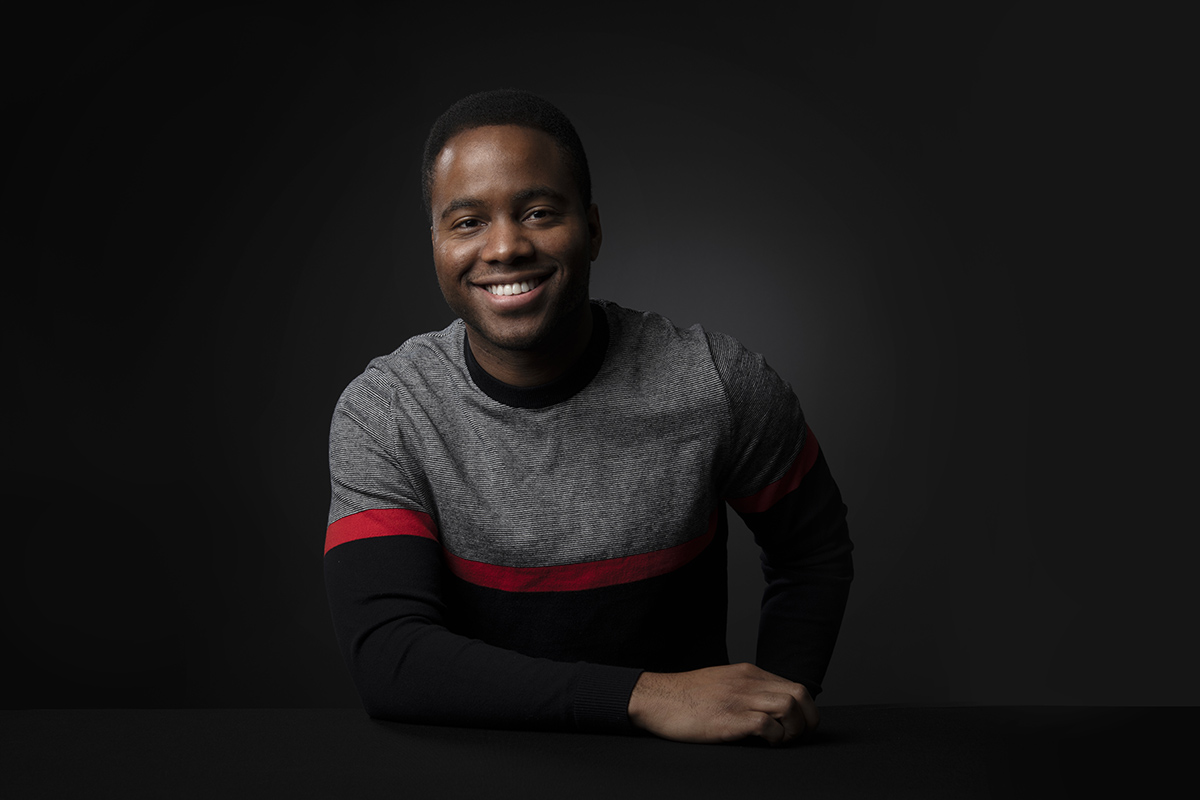
Ashton C. Trotman-Grant
PhD candidate in the Department of Immunology at the University of Toronto and Immunology researcher at Sunnybrook Research Institute
Personally, Black History Month means representation. It provides an opportunity for myself and others to discover, celebrate and understand the impact that Black people and our culture have on society — both past and present.
Particularly within STEM, where we continue to be underrepresented, celebrating Black scientists, doctors and entrepreneurs, gives youths a vision of where they could be and what they can achieve.
I chose to pursue a career in science because I enjoy the challenge of discovering something new. It leverages my curiosity and creativity as I try to find answers to my questions. It’s also such a collaborative discipline, so I get to learn from brilliant minds and discuss interesting ideas daily. There’s beauty in the process and it’s one of the best ways to make an impact on the world.
I am a PhD candidate in the Department of Immunology at the University of Toronto. I work in the lab of Dr. Juan Carlos Zúñiga-Pflücker, where I study how to grow T cells – an important component of the immune system – from stem cells. My research also involves programming cells to give them new functions, a process that involves modifying their DNA. I have a twin brother who is pursuing his PhD in immunology at Stanford University and my parents, unbeknownst to them, just happened to give us both the initials: A. C. T. G – the letters that make up the genetic code of life. Beyond my research, I am involved in entrepreneurship, youth mentorship and public speaking.
An accomplishment that I am proud of is developing one of the foundational technologies for Notch Therapeutics, a start-up I had the opportunity to co-found with Drs. Peter Zandstra, Shreya Shukla, Mahmood Mohtashami and my supervisor, Dr. Juan Carlos Zúñiga-Pflücker. As scientists, we don’t want our research to sit on the shelf in a journal. We want to translate our discoveries and technologies so that they can benefit patients. Notch aims to develop immune-based therapies for cancer patients, and I am so proud to see the company grow, reach milestones and ultimately progress towards that goal. After my PhD, I hope to continue building companies and inspire a diverse generation of young people to pursue science and entrepreneurship.
This is a wonderful month of celebration. However, appreciating Black history and culture should not be limited to just one month. And it isn’t just a commodity to be appropriated and monetized. I encourage us all to learn about it, embrace it, and to continue to love and support one another.
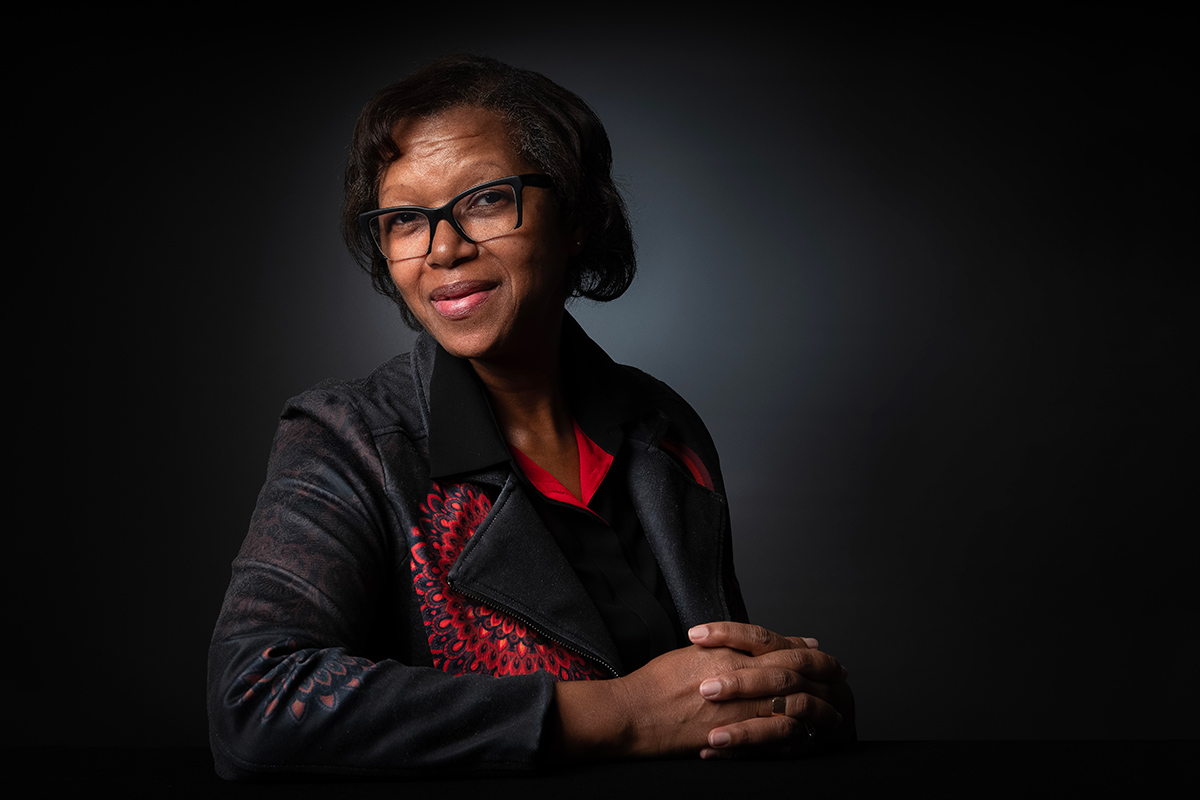
Audrey Castello-Gray
Network Support Analyst, Information Services
Black History Month is a month dedicated to people of colour. It’s a time to be intentional in reflecting and giving thanks to the incredible individuals that fought for our rights and freedom. It’s a time to celebrate. And it’s time to be further educated about who we are as a people, our struggles, our achievements and our impacts in this world, past and present.
I am a Network Support Analyst in the Information Services Dept. at the Sunnybrook Campus since 1990. I am truly thankful and blessed for the years of opportunity, working at Sunnybrook.
It was at the high school I attended in Etobicoke where I experienced the most racism. It required me to be interviewed for entry and there were less than five students of colour in the school. The movie Roots also came out while I was attending high school, which intensified racism. However, the racism I endured during my high school experience strengthened my character and my resolve.
There were many challenges in my career prior to Sunnybrook. First, my surname does not suit my ethnicity, which has posed some barriers in my life journey. I have missed many opportunities for hiring and/or promotions due to my name not matching the colour of my skin; in many instances, the expectation was to meet an Italian woman. I have been questioned hundreds of times about my surname “Castello” and in many instances told my voice does not reflect a person of colour.
The reality is racism will always exist on many levels —personal, cultural and national. The heightened level of racism exposed in 2020 is definitely frightening. History was revisited and written. I feel with the renewed focus on racism and dialogue that is happening throughout the world, we will see changes in attitudes and behaviours, where people will be treated with dignity, regardless of skin colour. I am optimistic and hopeful that positive, effective and meaningful changes will be forged.
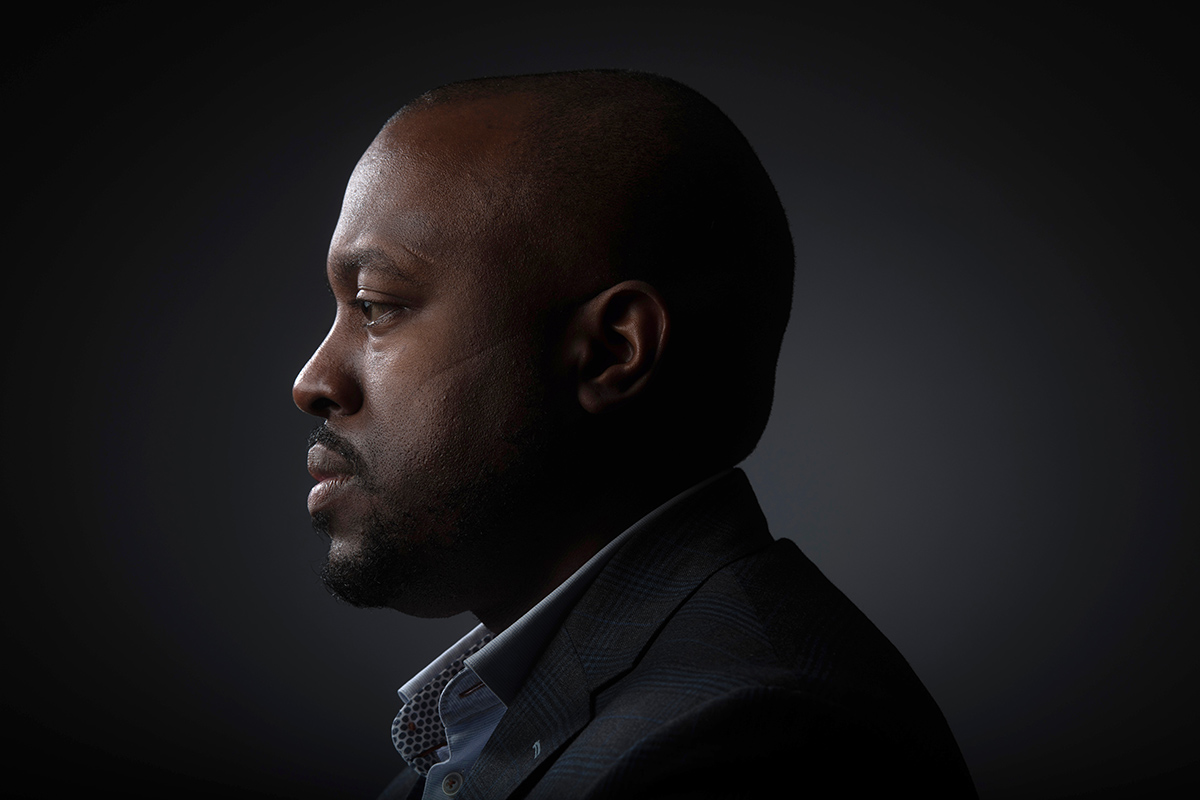
Dr. Bourne Auguste
Nephrologist with a focus on home dialysis, Department of Medicine
Black History Month is a time for reflection. It serves as a powerful reminder of how far we have come and of the important work that lies ahead.
It provides me with an opportunity for profound self-reflection, recognizing the importance of the opportunities granted to me that others who came before me did not have, solely on the basis of their appearance. I am also humbled by the notion and importance of being a good ambassador to individuals in the Black community and knowing that I can use my platform as a means to empower others in attaining success.
I was born in the Caribbean and came to Canada just under 20 years ago. I relish opportunities for challenges and I’m always driven to do better the next day. Each day provides an opportunity to learn from the prior day and for me that is important in personal development.
I do not want to highlight one single triumph or challenge here, but me having the opportunity to speak about my career path thus far is a triumph in and of itself. In my training and professional career, there have been a few occasions where patients have asked to see other doctors because they could not trust that my training or skill was up to par with my other non-Black colleagues. These unique experiences have been powerful reminders that even in today’s society, we have a long way to go and they remain catalysts for my motivation to work hard in my life, make meaningful contributions to society, and enhance the care of others even in challenging circumstances.
There has been significant progress in addressing anti-Black racism but we still have a way to go. I am happy that Black History Month can be used as medium to continue the dialogue about where we still have to go.
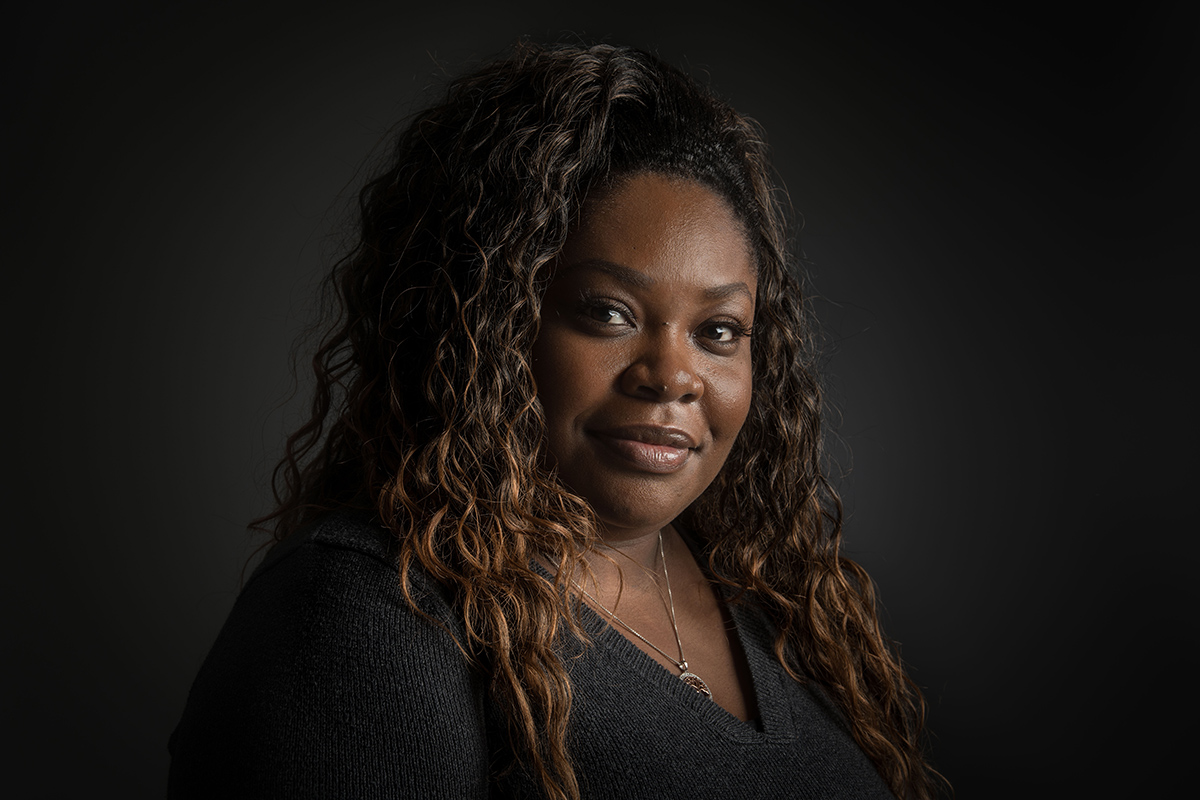
Iyandi Campbell
Clerical Assistant, St. John’s Rehab
Black History Month allows us to celebrate ourselves in different ways and ensures that people know our names, our culture and our history.
We are able to take up space and our stories are at the forefront. Additionally, it also highlights the complexities of what it means to be Black, not only as a Canadian, but internationally as many experiences vary and that ultimately weaves into a larger idea of what Blackness looks like globally.
I work in Administration in the Outpatient Department at St. John’s Rehab campus. I have been with Sunnybrook for 10 years. I pride myself on being unapologetically Black and I am always open to sharing the magic that comes from being who I am #blackgirlmagic
Black women are often under-represented in many professional spaces so at times it was challenging to connect with coworkers or superiors, who seem to find it hard to relate. I have been fortunate to be able to create great relationships with my colleagues, which has allowed me to be myself and enhanced my professional and social experiences over the years.
Black History Month is every month for me. But it is comforting to know that I work in a place that continues to make efforts towards anti-racist practices and sees the need for institutionalized change in light of today’s climate.
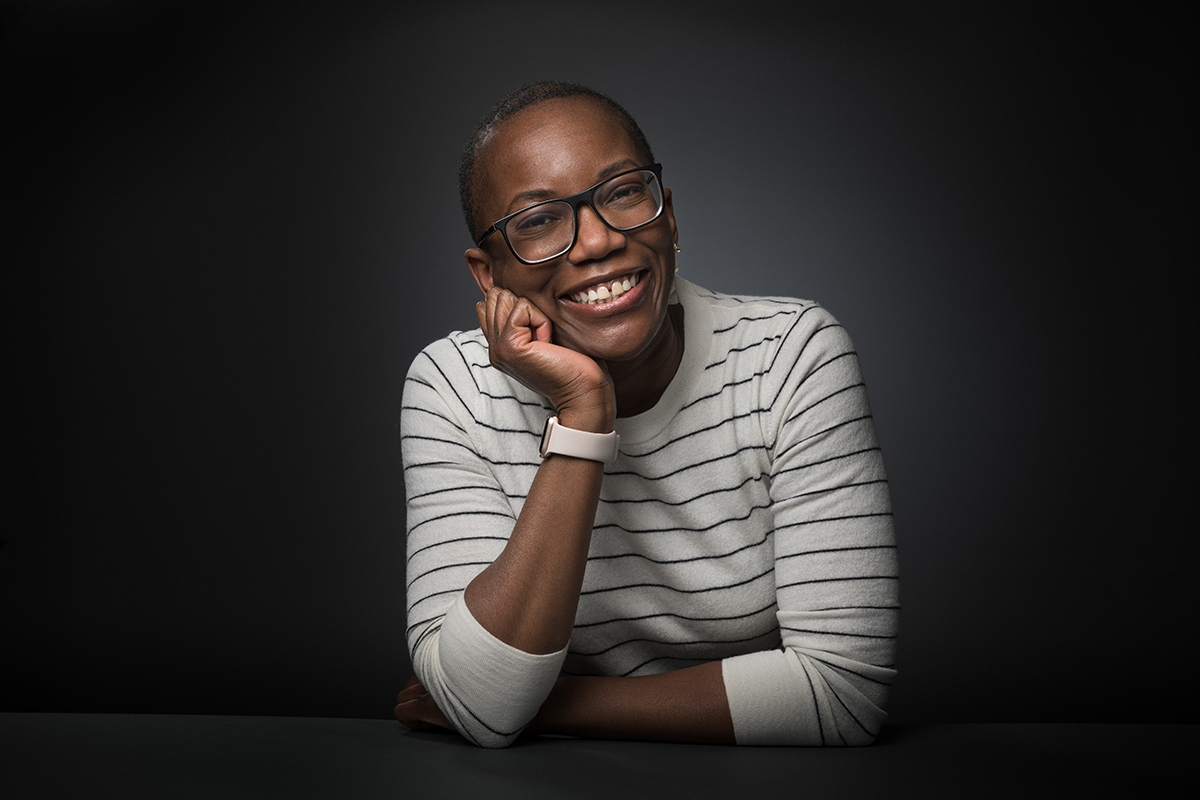
Jodie Phillips
Respiratory Therapist
Black History Month means enlightenment and education about the great contributions of Black people in the past and how it has helped the community today. It also means sharing stories that seek to showcase that despite adversity and discrimination, a diaspora of individuals continues to persevere, thrive and accomplish amazing things.
I am a Registered Respiratory Therapist and have been working at Sunnybrook since 2010. Outside of work, I am a wife, proud mother to a remarkable and inquisitive 2-year-old and pursuing continuing education online. I've never been busier in my life!
In my regular practice, I frequently see racial bias in the diagnosis and treatment of people of colour. Black and Brown patients are more likely to have toxicology screens ordered on them than white patients. I hear comments from white healthcare workers making assumptions and stating personal opinions of a Black or Brown patient's social history to explain how they ended up in hospital, highlighting their prejudices and stereotypes.
I also see and share wonderful moments with my patients and their families. Recently, I was caring for a lovely patient who is coping with a spinal cord injury and their daughter was at the bedside visiting. Managing care for this patient presents with many daily challenges, as each day we seek to maintain their muscle strength and make several attempts a day to wean them from mechanical ventilation. We are able to facilitate their speech at this time and they have been a wonderful participant in their own care. My goal is both to act as a motivator and cheerleader but also to be empathetic when they need a break. After discussing the plan and expectations for the day, I turned to the patient's daughter and asked if she also had any questions. The daughter was silent and I noticed her becoming teary-eyed, which I of course became alarmed at and asked if she was ok. She replied that she appreciates the care and time that I am taking with their parent. During this pandemic when visitation time is limited and given their parent's diagnosis, she worries that she is unable to care for them as much as she would like. She said that knowing that I was one of the individuals caring for their parent made them feel relieved that they did not have to worry as much. I explained that I try to care for each patient as I would want myself or my own parent to be treated. And also, I am determined to make them a part of their own care plan, particularly because she is fully aware and cognizant with her own thoughts and feelings that should always be taken into account.
This interaction made me feel proud of the work I do. It was an incredible validation for the effort I put into caring for patients and indirectly their families. I always try to leave my patients in a better condition and state that I found them in. As a Respiratory Therapist, I tend to only be a part of someone’s life at their most critical and vulnerable moments of their life. So, I regularly try to intertwine emotional support and empathy into my care practice.
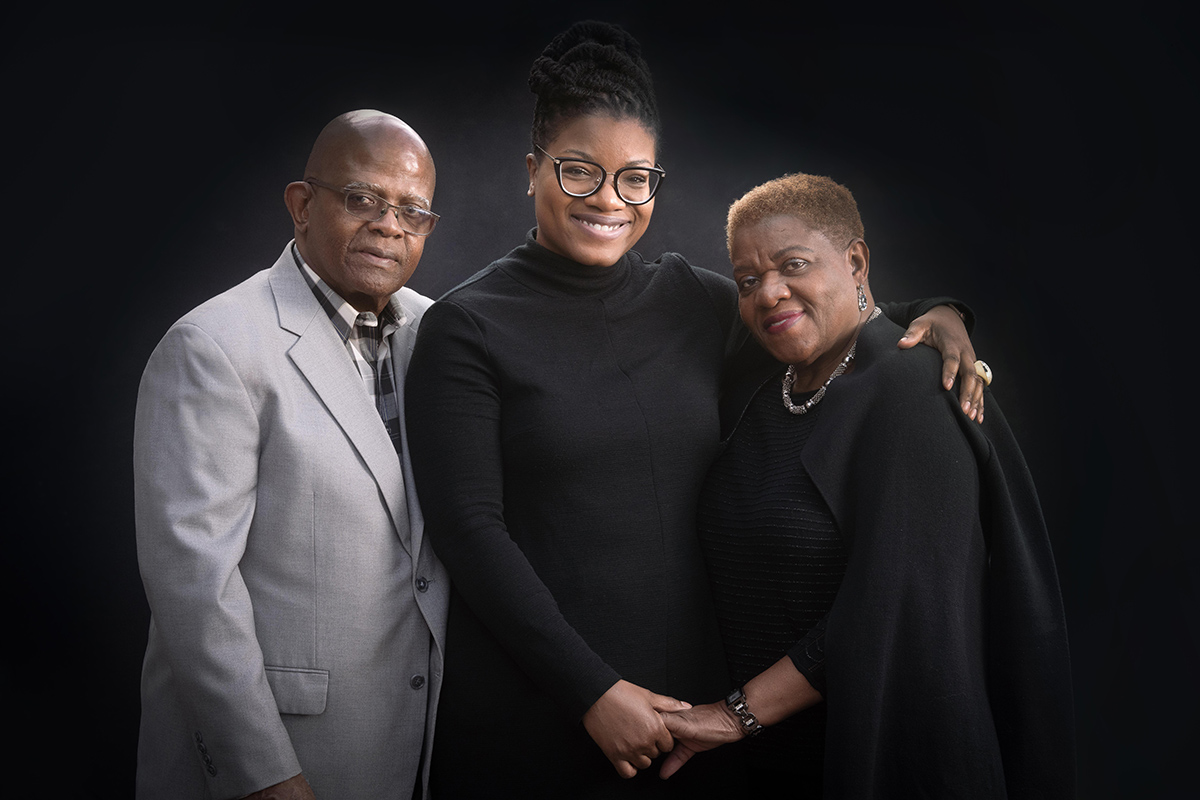
Michael Phillips, OR attendant (retired) and Kamilah’s stepfather
Kamilah Clayton, PAA
Valrie Phillips, registered nurse (retired) and Kamilah’s mom
Michael: To me, Black History Month is a time to acknowledge the achievements of Black people around the world, and to be recognized for my accomplishments.
Valrie: It’s a time to recognize and acknowledge the accomplishments of Black people throughout history. It’s an opportunity to think about the privileges we have as a result of those that came before us, and also honour their legacies by appreciating what we have and striving to accomplish more.
Kamilah: Black History Month has always been a time to celebrate the beauty of people of African descent. More recently I’ve been intentional about pre-colonial African history, so I can teach my daughter that her history did not begin with African enslavement. It’s important that she knows how rich her history is, so she can be confident in who she is where she comes from.
Valrie: As you can see, our time at Sunnybrook was a family affair. I met my husband at Sunnybrook, and for the past 20+ years, my daughter has also been an employee there.
I was a nurse at Sunnybrook for 38 years, and had the opportunity to work in different areas of the organization. Most recently, I was a nurse in the hemodialysis unit, and at different points in time served as a Renal Transplant Coordinator and Dialysis Modality Educator. As Dialysis Modality Educator, I supported patients in their decisions about the most suitable mode of treatment for them, and this to me was a demonstration of patient focused care, one of the values that has guided my entire nursing career.
I never imagined when I began my nursing career at Sunnybrook that I would have had such a variety of experiences and held different positions. I can honestly say that my time at Sunnybrook helped me to see my skills and ability, and how I could use them to be successful in whatever role I chose. I retired from Sunnybrook in November 2020, and despite being in the middle of a pandemic, I’ve been finding ways of enjoying life post Sunnybrook.
Michael: In 1969, I started at Sunnybrook as an orderly and later transferred to the O.R. as an attendant. I eventually transferred to the Union offices and became the first Black President of Sunnybrook Hospital’s SEIU bargaining units for Service and Clerical staff in 1991. I served in the role as president for 10 years, and to this day I consider it (and the collective agreements I negotiated while in this role) one of my biggest accomplishments. This triumph was also the biggest challenge I faced as a Sunnybrooker — I was not being recognized by the management team when I became the president of the union. They were not willing to accept that I, as a Black man, could fulfill the requirements of that role. But that’s okay, because I spent 10+ years proving them wrong. I eventually retired from Sunnybrook in 2004 and worked at the SEIU Head Office, where I served as the business agent for Sunnybrook’s Service and Clerical bargaining units.
Kamilah: I began working at Sunnybrook as an Activity Aide in the Veterans Centre in 2000. After 2 years, I transitioned to the role of PAA and have been working in this capacity ever since. One of the most important things people should know about me is that I’m creative, and a natural at problem solving, both characteristics I inherited from my mother. I’ve had the opportunity to further develop them through watching her come up with creative solutions to support her colleagues. Not everyone can say that they have first-hand knowledge of the impact their parents have on their colleagues; I’m privileged to be able to say that and know that my mother’s role modelling has had a direct impact on who I am today.
Becoming a member of PART has been my biggest triumph during my time at Sunnybrook. Connecting with my colleagues from across Sunnybrook has been a great learning experience, and I look forward to working with all of them to embed anti-racist policies, practices, and procedures into Sunnybrook’s DNA. Even though my parents have both retired from Sunnybrook and won’t be able to see the impact of the PART committee’s work, they are proud of the contribution I’m making to the organizations equity journey and are hopeful that better days are ahead!
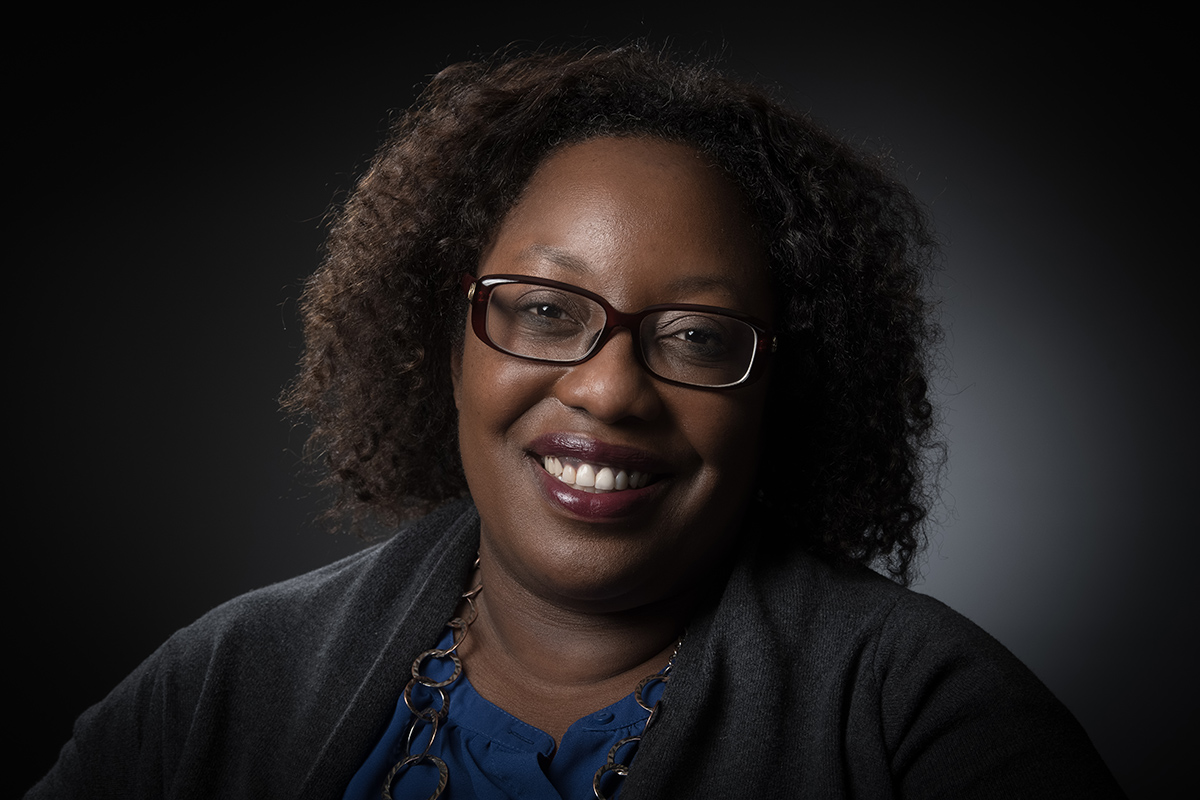
Michelle Lynch
Coordinator, Volunteer Resources
President’s Anti-Racism Taskforce member
Throughout my career, I have dreamt big, only to realize that I was the only one at the table who looked like me (or at least one of a small few).
From university — as one of the only Black students in my journalism and French programs — to pursuing employment at a variety of amazing organizations, I would look around the room knowing I was the only voice who could share my unique view: the perspective of a Black, first-generation Canadian woman, the product of hard-working parents from Barbados who simply wanted the best for their children when they immigrated to Canada from England.
I faced challenges from being the default spokesperson for “all” Black people to the racist situations while only doing my job with limited avenues to report them. The surprised looks when my name, skills and experience never matched the “anticipated” candidate. There was also that feeling of having to be "perfect" because I was representing my people, my family no matter where I was — knowing any errors or missteps would be immediately noticed or criticized — possibly unfairly. It is a weight.
So, while this was a challenge in my early career (and for now, remains so), I feel I have found success in fulfilling my aspirations. Most dear to my heart has been the opportunity to mentor up-and-coming Black youth and provide them with career guidance or support, where I may not have had the same opportunity.
For me, Black History Month has so many meanings, but the word that immediately comes to my mind is: evolving. From my early days in school, Black History Month was barely celebrated and often there were questions as to why it was important to acknowledge Black people and their contributions for a whole month in the first place, when others did not have the same.
Explaining the rationale often took some of the joy away, but it did not stop me from really taking time to fully embrace my culture and people. Through film, music, food and more, it is soul enriching to celebrate our contributions.
We have now evolved to the point where many Black people are truly seen for their talents, skills and accomplishments and hopefully even more will be duly recognized for what they have sacrificed over generations, with many stories still to be told.
Today, there is more acknowledgment that one month is not enough with a rich history that can be shared all year long.
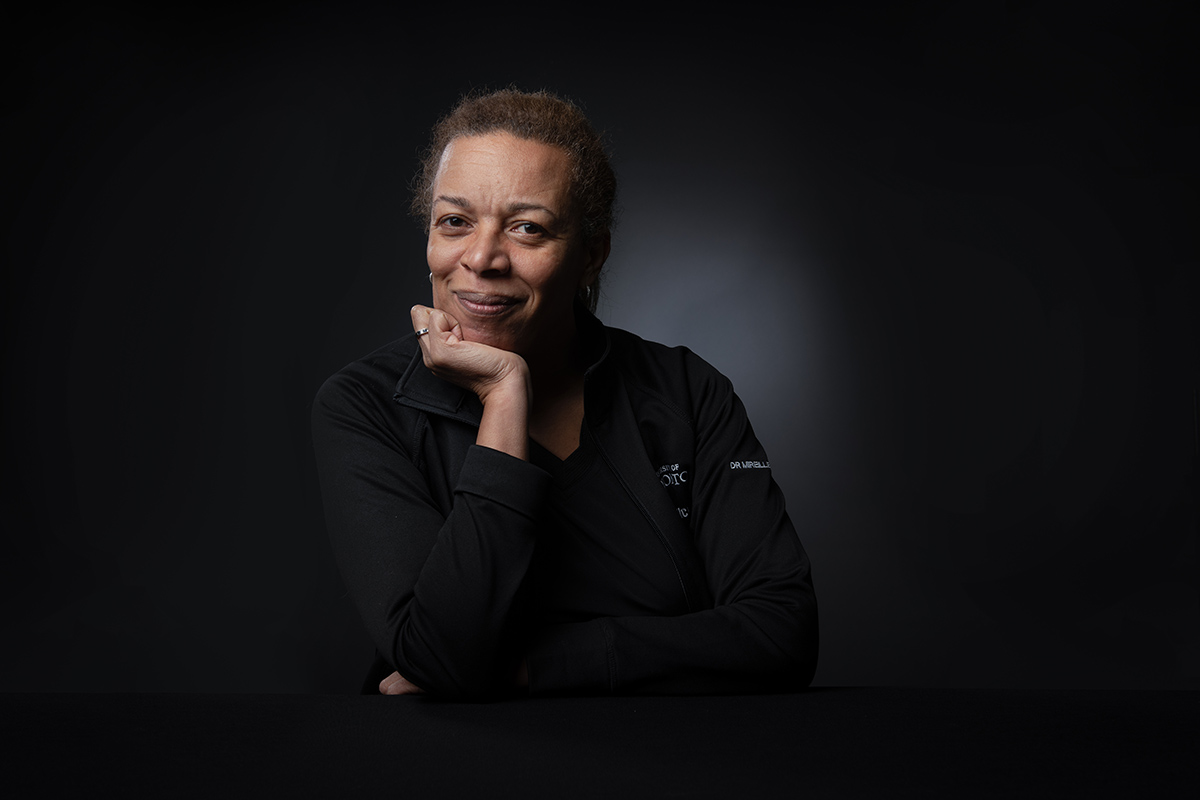
Dr. Mireille Norris
Internist and geriatrician
I was born in Haiti, which was the first colony to abolish slavery in 1793 and overcome oppression from the French colonialist powers. Haiti gained its independence on January 1, 1804.
Black History Month is an opportunity for me to reflect on my heritage and take pride in the struggle of the Black community. I feel that we need to reflect on history because history impacts our daily lives. Because of the legacy of colonialism and oppression, this history is usually not known or taught in school.
I arrived in Canada as a toddler. My father was a psychiatrist and my mother was a school teacher in Haiti. I grew up facing adversity from young age, often because I was the only Black person in my classroom, or in my workplace, or in my neighborhood. Also, English is a second language, which made my university education particularly challenging.
I initially trained as a physical therapist at McGill university in English, which is second language for me. I pursued studies in Medicine in French at the Universite de Montreal after working as a physical therapist for three years before medical school. I continued to work as a physical therapist during medical school to support my studies, until my residency in Internal Medicine. I came to Toronto in 1996 to complete a fellowship in geriatric medicine at the University of Toronto. I am very proud of the fact that I have three children and I am very involved in supporting my family.
I attribute my success to persistence, support of my family, friends and allies in the school and healthcare system who enabled me to be where I am today.
I am grateful to serve the community of patients, colleagues and trainees at Sunnybrook and at the University of Toronto. It is a privilege to serve and I hope I can inspire others from under-represented groups by my contribution to the Sunnybrook family.
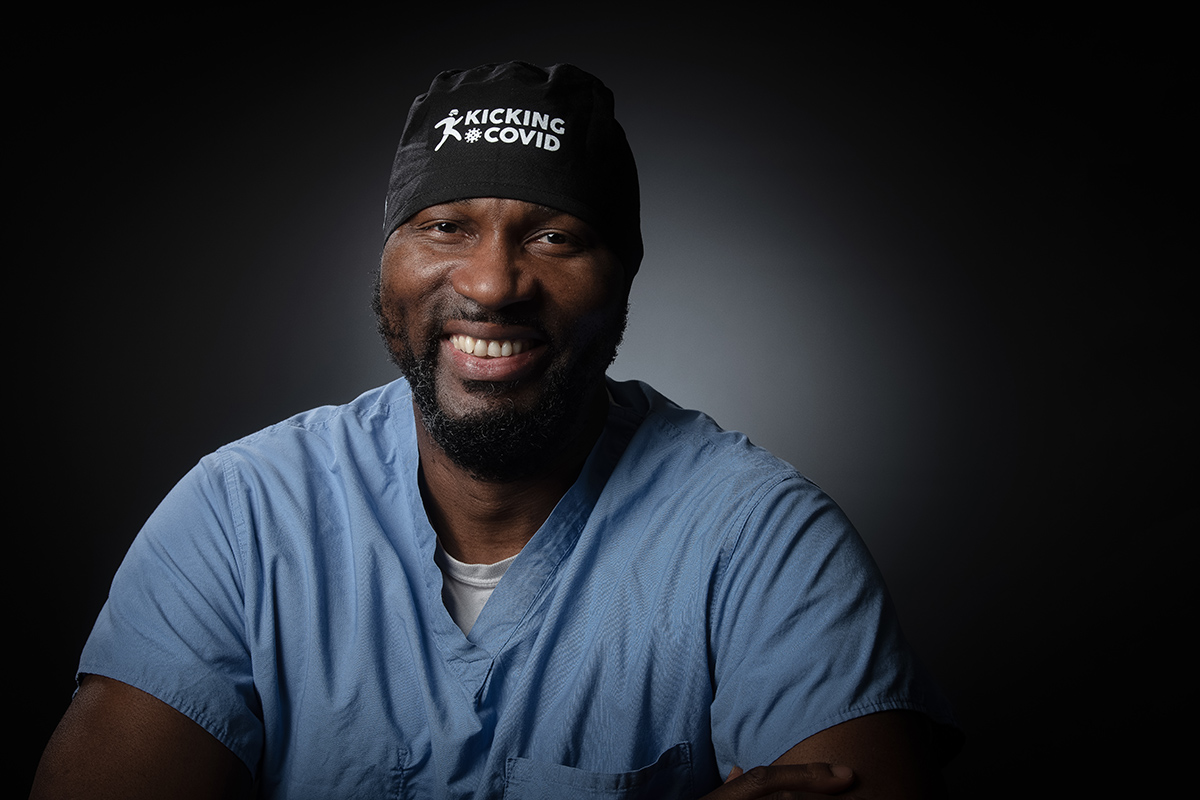
Niyi Fajemirokun
Registered Nurse, Hemodialysis
Black History Month allows us all a moment to pause and reflect in our busy lives to learn and remember the extraordinary individuals who made sacrifices, endured endless struggles and suffering, but persevered to make remarkable contributions to society. Whether it was the discovery of a new innovation or most importantly paving the path for equality rights and inclusion, the hard work of these past individuals has allowed individuals like me and others of minority groups to be in places and roles of opportunity that would have not been existent previously. Therefore, it reminds me to be appreciative of the privileges I have today.
In addition, this month also serves as a month of awareness and an important reminder for all ethnicities to learn about the past and about the history of a group of people in order to engage in meaningful conversations, education, and action towards solutions on critical issues faced by this community that are still lingering on today.
Black History Month re-energizes and inspires the current and next generation to push through adversity, to reach for new heights and be trailblazers in their own journey.
When I migrated to Canada from Nigeria, I worked as a RN in a small town called Liverpool, Nova Scotia, in the general medicine unit for about two years. In the midst of the recession, I took a risk and moved to Toronto and got hired on the B4 general medicine unit. In the past 6 years, I have been a dialysis nurse taking care of dialysis patients on and off unit, while also assisting as a Team Leader. I enjoy my career because while I get to witness first-hand how advancement in medicine and technology is saving and prolonging lives, I also enjoy the most heart-touching moments where patients confide in you, trust you, and having the ability with the smallest actions to uplift their day. At the end of the day, what matters most is how we make people feel in their most difficult times.
As a 6’6 Black male nurse in the health care field, I often get met with disbelief that I am a nurse, both at work and in the outside world. While individuals are inclined to approach me and want to get to know me because of my height, there is also constant commentary made both by patients and staff assuming I am a “bouncer”, “security guard”, “cleaner”, or “personal support worker”, or endless comments of how I should have been a “basketball player”. While these roles are incredible in their own right and deserve their respect, it reinforces the narrow image of what individuals see: that I only fit in these roles. There has never been a question about whether I am the nurse, the researcher, or the doctor because it’s not the image that comes to people’s minds. This is why representation is crucial. People of any ethnicity or background can be anything, not only a handful of roles.
I am thankful for the president of Sunnybrook for starting the President’s Anti-Racism Taskforce (PART) and for the members who will be a part of it to create effective change. It’s vital to create environments wherein our merits and how far we can go in our journey are not inhibited by our background, but rather value is given to what individuals are bringing to the table without bias. We all want acceptance and appreciation for who we are without judgement. May we practice that in our actions, and most importantly in our words, in how we make people feel.
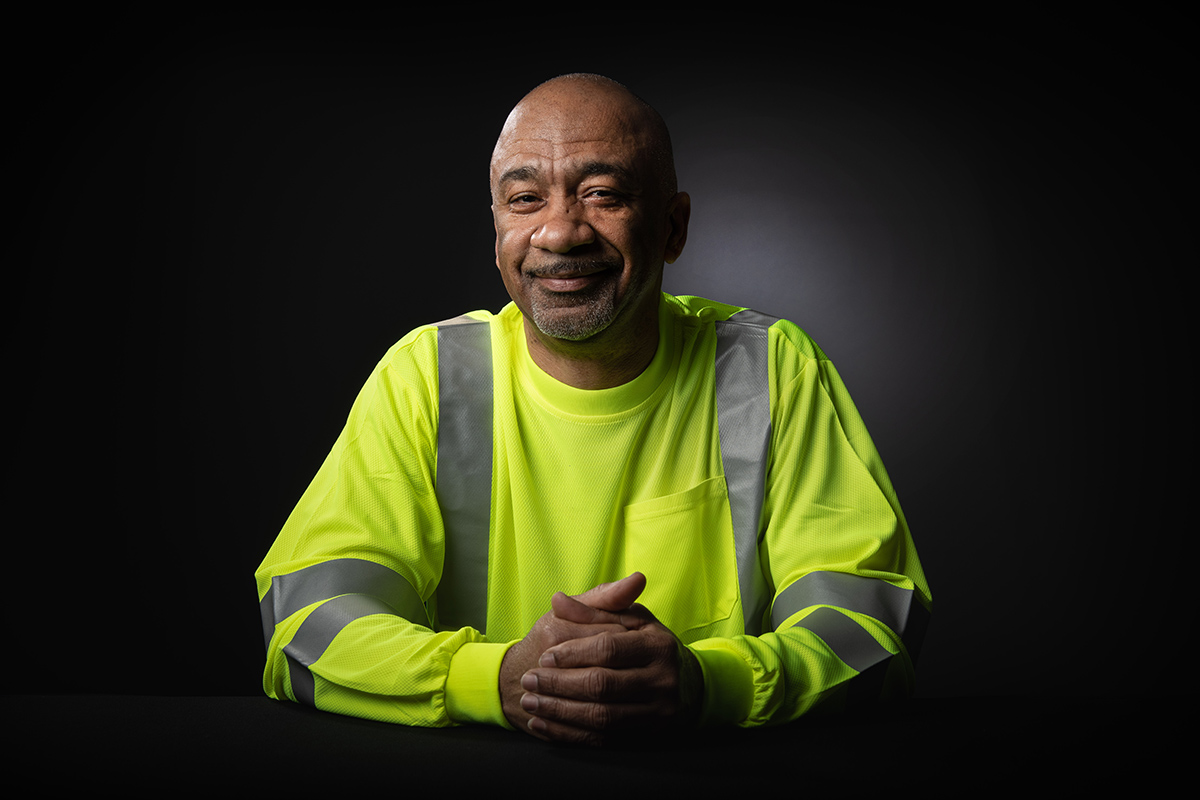
Rohan Harrison
Grounds Division Team Leader
Black History Month means dignified inclusivity! It’s an opportunity to communicate and educate folks about the successes, struggles and resiliencies that BIPOC people and other marginalized communities face.
It is a platform to keep pursuing the mandate historian Carter G. Woodson started in February 1926. Despite some people seeing Black history as divisive and mistakenly label it 'racist’, I see it as an attempt not only to recognize the issues of this community, but also to come up with dignified plausible solutions to strengthen inclusivity for all nationalities.
Being a product of the African diaspora, I feel connected to the issues, and Black History Month is a great launching pad, for not just one month, but for daily awareness, respect and equity for everyone — a resolve to make meaningful change in our personal sphere of influence that creates inclusive and equitable opportunities for all.
None of us had the choice of family into which we were born, nor what colour or race we would be. That was divinely decided for us and I am not prepared to discriminate or challenge the Will of the Creator or his creation. I am who I am, a son and Steward of Creation.
Life is comprised of blessings and battles, or racial triumphs and challenges, competing to define our career experiences, and although motivated by certain goal-harmonizing empowering mantras, and fueled by self-actualization, I have experienced both.
My triumphs are abundant. Being charged with the responsibility of looking after the incredible grounds at Sunnybrook with organic, sustainable land-care practices, I know our green spaces play a valuable role in human health and well-being. These spaces potentially provide preventative and restorative healing, and serve as an extension to the important and lifesaving work happening within the walls of the hospital. I’ve been able to promote organic sustainable landscaping and contribute to the increase in our provincial tree canopy coverage, along with other accomplishments. None would have been possible without the support of the respective corporate structures, even though they were lacking visible minorities.
The racial challenges I’ve experienced are also striking. This ultimately prevented my growth, significance and advancement within some of these aforementioned corporate structures. Creativity, efficiency and self-actualization were bottlenecked by discriminating systemic racism, blurring channels of communication and contributions. Issues of pay equity, dignity, lack of transparency and bypassed educational opportunities lessened inclusiveness and advancement.
I applaud Sunnybrook’s commitment to strengthening inclusivity, and moving the dial forward on racial equity. Establishing P.A.R.T and providing SLI workshop courses on ‘Essentials’ are steps in the right direction.
Together, we are Stronger.
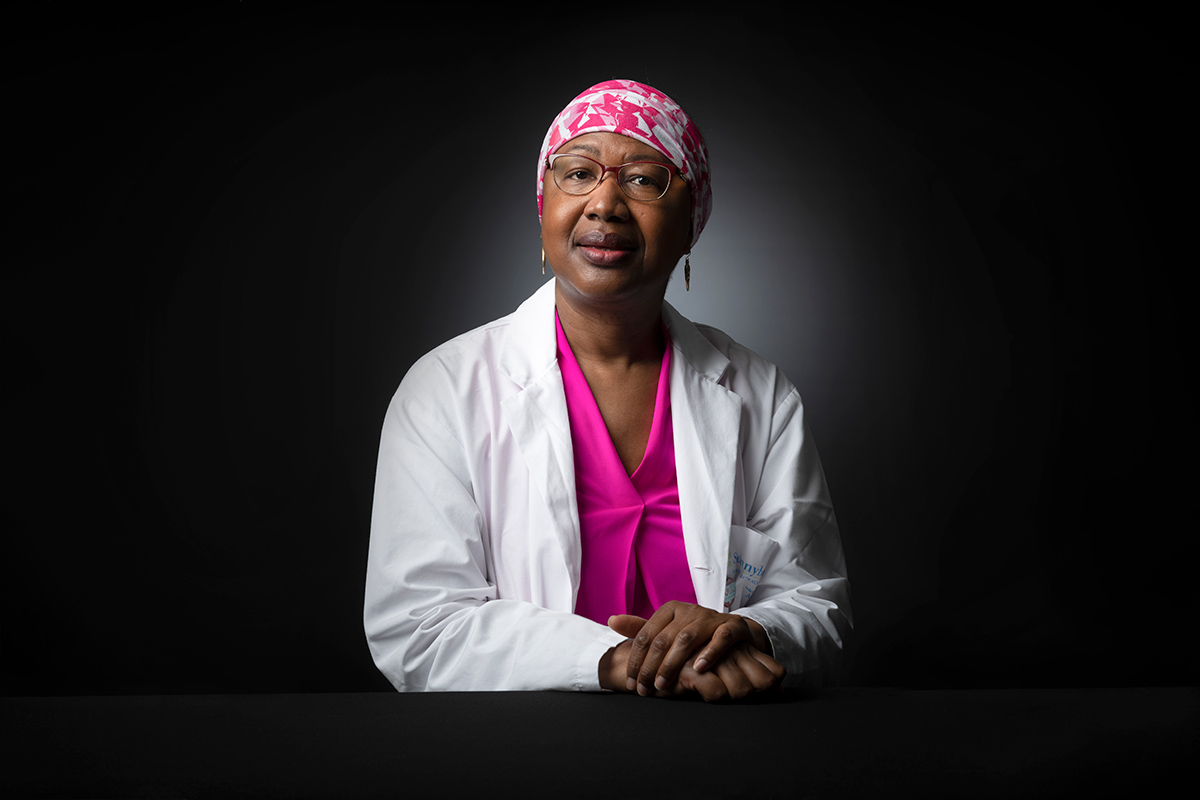
Suzette Turner
Nurse Practitioner
I am a Nurse Practitioner in the Arrhythmia Service at Sunnybrook. I started at Sunnybrook in Critical Care unit in 1989, changed over to the CVICU, followed by the cardiac surgery in-patient unit before finally settling in the Arrhythmia Service in 2002. Throughout this experience what buoyed me was the camaraderie shared by nurses from all backgrounds. I am proud to be part of a diverse team that provides care to a diverse patient population.
Transitioning from a foreign-trained Jamaican RN to a Canadian RN was a challenge. Although challenging, unique opportunities were presented where I have been mentored by leaders from both nursing and medicine, present and past, due to their altruistic nature to be at the place I am today.
To me, Black History Month means the acknowledgement of culture and heritage of the descendants of the African diaspora through the sharing of lived experiences that examines our storied past.
It showcases the struggles that the current and future generations of descendants of Africa have and will need to overcome in the face of adversity. Living in a country of pluralities, Black History Month provides the opportunity to address the multiple disparities presented, be it health, social or political. It should be a month for reflection on ourselves as well as other disenfranchised groups — Indigenous peoples being chief among them as well as other marginalized groups, such as the differently abled.
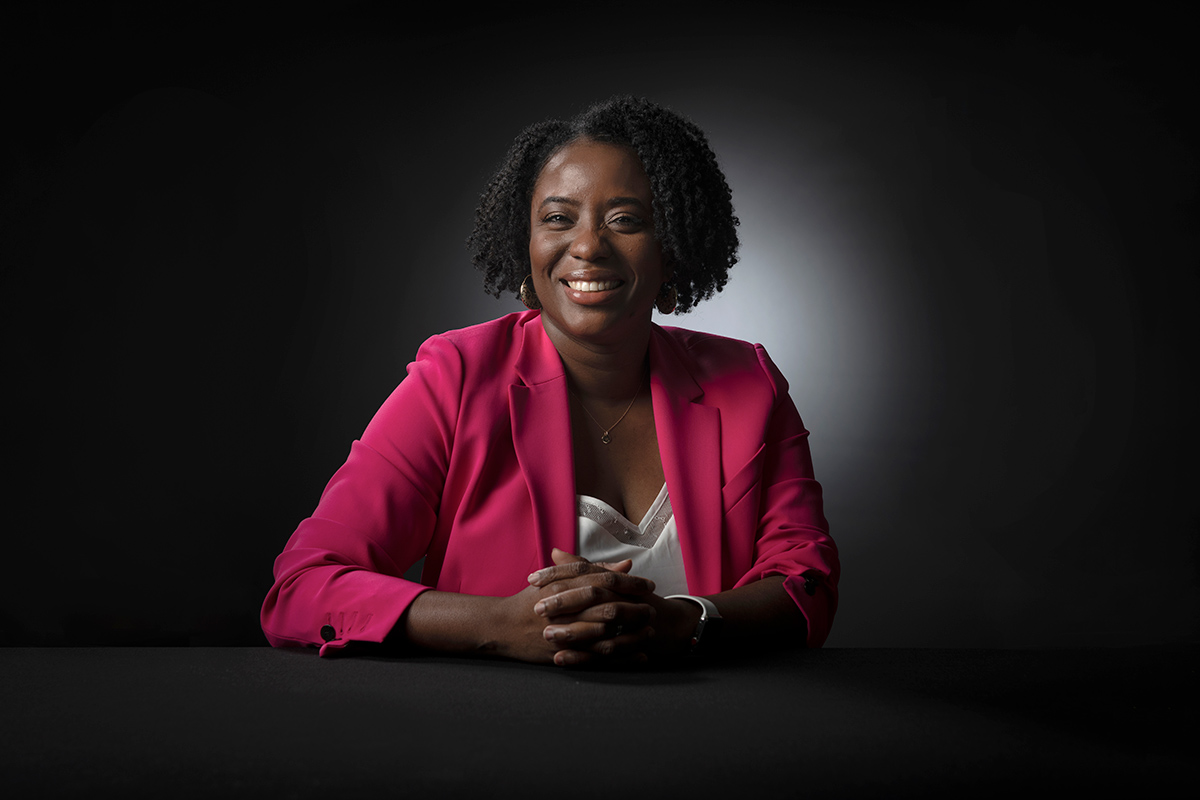
Winnette Sampson
Director, Community Engagement, Sunnybrook Foundation
President’s Anti-Racism Taskforce member
I operate in predominantly white spaces — spaces where I perceive my otherness, my blackness, to be very evident given that in many cases, I am the only Black person in the space.
Black History Month is a time where the history, food, people, culture and stories of the Black diaspora are celebrated and honoured. It is a month where I feel more seen. And it presents an opportunity for my daughter to be even more proud of her ancestors and to learn more about those people and things that have contributed to who she is. While Black History Month presents that opportunity, I am also acutely aware that black history should be woven into all aspects of society so that every day my daughter and many others are seen and validated daily.
For the last 12 years, I have worked at the Sunnybrook Foundation creating experiences and sharing the Sunnybrook story to raise funds and awareness of the hospital. My story at Sunnybrook is informed by me being a daughter to independent and fun-loving Black parents, a mother to a precocious daughter, a wife to an introspective soul, a friend to amazing individuals and an immigrant from Trinidad. This job, the aforementioned identities and many others, have helped influence the woman I am today.
Being a member of PART is one of the privileges of my career at Sunnybrook. COVID-19 and the surge of the awareness of racial injustices last year left me feeling that there is more that I can do in creating equitable and safe spaces. It is my hope that I am able to use my voice and experiences to make a tangible difference in the policies and practices at Sunnybrook.
Photography by Kevin Van Paassen






